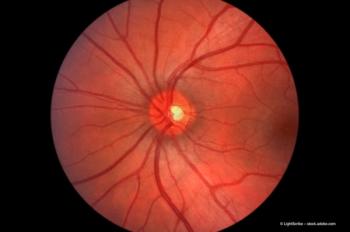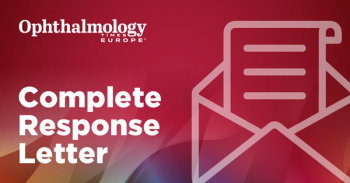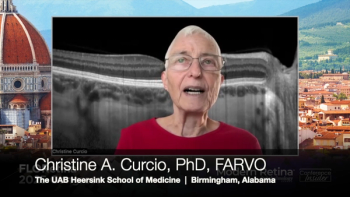
Clinical trial offers insight into development of KSI-301
While the DAZZLE trial failed to meet its primary endpoint, KSI-301 demonstrated good initial visual gains and anatomic effects as well as positive durability.
At Retina World Congress in Fort Lauderdale, Florida, United States, Dr Carl Regillo presented a talk entitled, “Results of the KSI-301 Dazzle Neovascular AMD Pivotal Clinical Trial.” While the study failed to meet its primary endpoint, KSI-301 demonstrated good initial visual gains and anatomic effects as well as positive durability.
Dr Regillo is the director of retina service at Wills Eye Hospital.
Video transcript
I had the opportunity to present the top line results of the Phase 2/3 pivotal study on the use of KSI-301 to treat neovascular AMD.
This is all very new information, so a lot of people are probably not aware of the results. Unfortunately, the study did not reach its primary endpoint in terms of KSI being noninferior in mean change BCVA from baseline to the primary endpoint compared to aflibercept.
So, we saw some initial visual gains that look good, in addition to some good anatomic effects early on during the induction phase, the monthly injections of the therapeutic, but some loss of vision over time. And so the amount of vision gain at the primary endpoint was not as much as aflibercept.
What we saw was very good durability, actually. And there's the positive aspect to the way KSI performed. Sixty percent of patients were able to be extended out or be treated as infrequently as every 5 months. So that is impressive, with 60% of patients going 5 months and doing very well, visually, anatomically, on par with aflibercept. It was the 30% of patients that were getting KSI-301, every 12 weeks or three months that didn't perform as well.
It is pretty clear from case studies in further analysis that those patients probably need to be dosed more frequently than every 3 months, because we saw a good initial drain 1 or 2 months after a given KSI dose. But then disease activity recurred significantly and that accounted for vision loss. It was that 30% of KSI patients getting treatment every 3 months that sort of brought the whole population visual acuity down over time to the primary endpoint.
Note: This transcript has been lightly edited for clarity.
Newsletter
Get the essential updates shaping the future of pharma manufacturing and compliance—subscribe today to Pharmaceutical Technology and never miss a breakthrough.




























